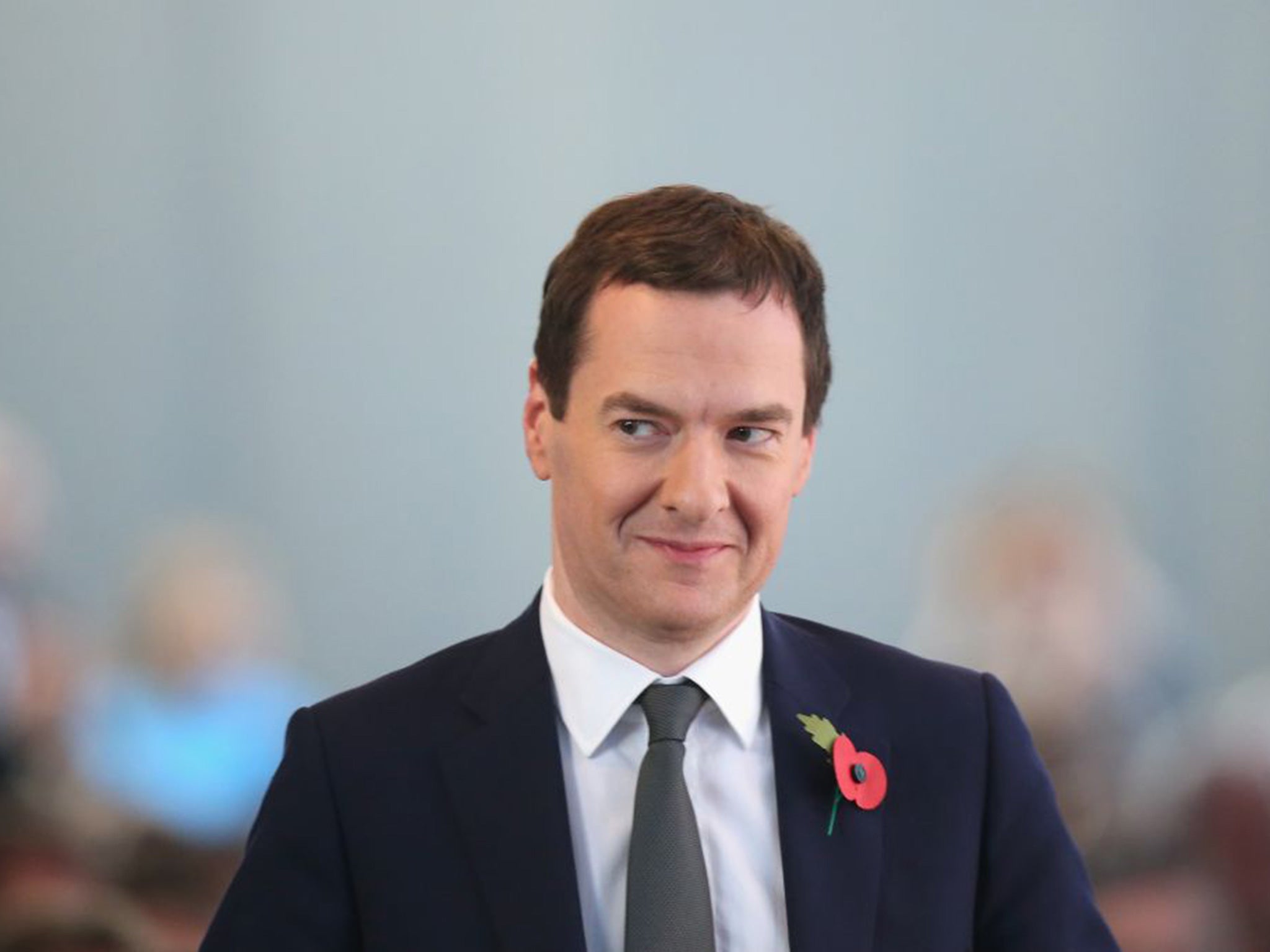Autumn Statement: 5 charts that show who will pay for Osborne's policies
The poorest in society will pay for Osborne's economic recovery through cuts and taxes

Chancellor George Osborne said in his Autumn Statement that the Conservatives are the "mainstream representatives of the working people of Britain" and that they want to achieve "economic recovery for all".
But there is evidence to suggest that certain sectors of society will pay for his economic recovery through cuts and taxes, including:
The Poor
The move to universal credit – which will eventually replace tax credits - will cost working households £1000 on average in 2020, according to the Resolution Foundation.
Tax, benefit and minimum wage changes in the summer budget and the autumn statement will cost 50 per cent of households £650 on average in 2020, the Foundation says, while the richer 50 per cent of households will lose nothing.
Students
The level of pay that graduates must earn before they start loan repayments was expected to rise in line with average earnings. But not any more. Osborne has frozen the income threshold at £21,000 for the next five years.
The Sutton Trust said this will “significantly increase the cost of higher education”. The average extra repayments over the term are £2,800. Women fare worse, with an extra £3,300 burden, because they earn less.
Trainees
Businesses that pay over £3 million a year in wages will now have to pay an extra tax of 0.5 per cent to put towards funding 3 million new apprentices. This will take funding from other types of specialist training that some sectors depend on - and that trainees depend on to get into skilled jobs.
“We still have major concerns about the policy’s unintended consequences,” said Sandy Scott, CEO at the Chartered Insurance Institute.
Effects of the cuts to Tax Credits
Show all 6“We believe the imposition of the levy in its current form could divert money away from non-apprenticeship training. And for the insurance sector, which has a long history of investing in training and development, this is worrying.”
Builders think the levy could divert money from the Construction Industry Training Board, their standard training.
“Our next step is to engage in extensive consultation with employers and work out the most effective way to continue providing the construction industry with the skills and training it needs,” said James Wates, Chairman of the CITB.
Tenants
By 2025, a quarter of all households will be renting
Tenants are going to see this tax passed onto them. This will affect more people than ever as would-be buyers cannot afford to own a home.
The chart above shows that private renters are increasing at the same rate as mortgage-owners are decreasing. Already around half of 20-39 year olds are in the private rental sector. By 2025, a quarter of all households will be renting, according to PwC estimates.
Unless buying a property becomes affordable, these housholds will have no choice but to bear the cost of their landlord’s extra taxes.
“Given that the private rented sector has accounted for the large majority of new dwellings created in England between 1996 and 2013, this extra burden threatens to reduce the number of new homes available at a time when demand continues to rise,” said Alan Ward, Chairman of the Residential Landlords Association.
Women
The tampon tax cannot be scrapped because of EU law, Osborne says. Instead, Osborne is using the money from the tampon tax to fund women’s charities.
But that does little to address the effect that welfare cuts will have on women – who as low earners will overwhelmingly bear the brunt of reforms.
Subscribe to Independent Premium to bookmark this article
Want to bookmark your favourite articles and stories to read or reference later? Start your Independent Premium subscription today.

Join our commenting forum
Join thought-provoking conversations, follow other Independent readers and see their replies